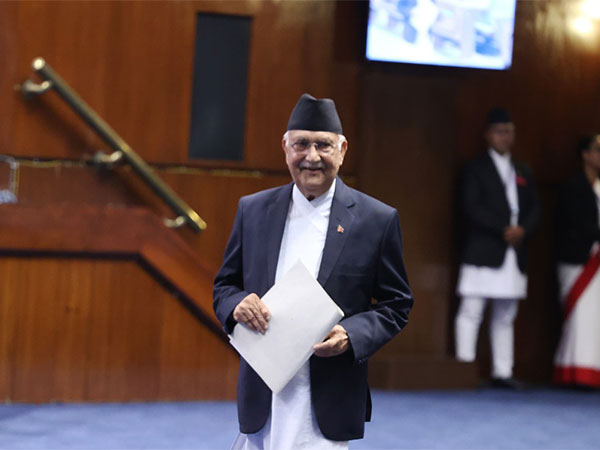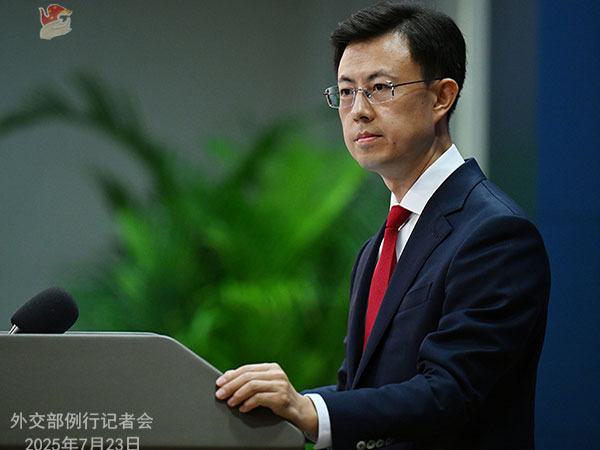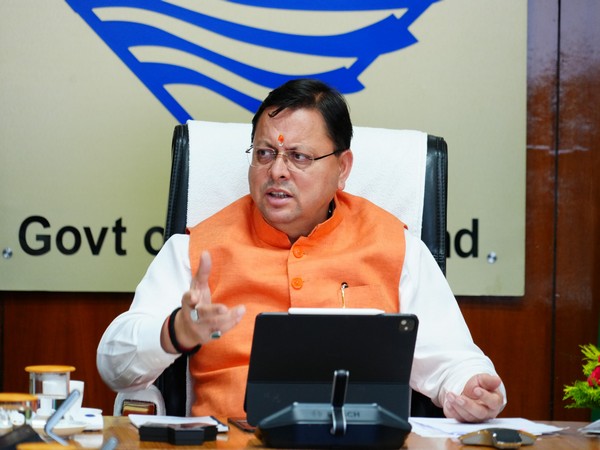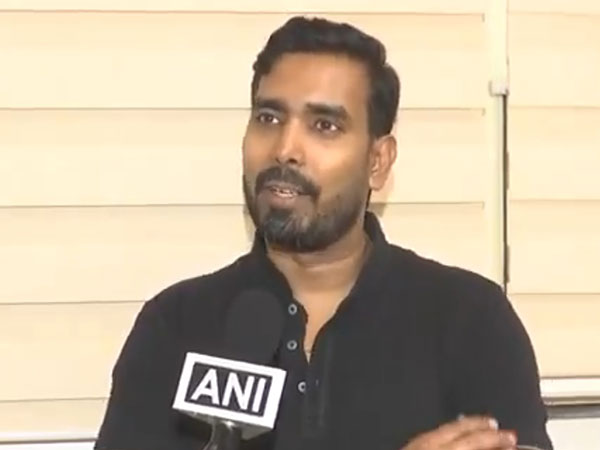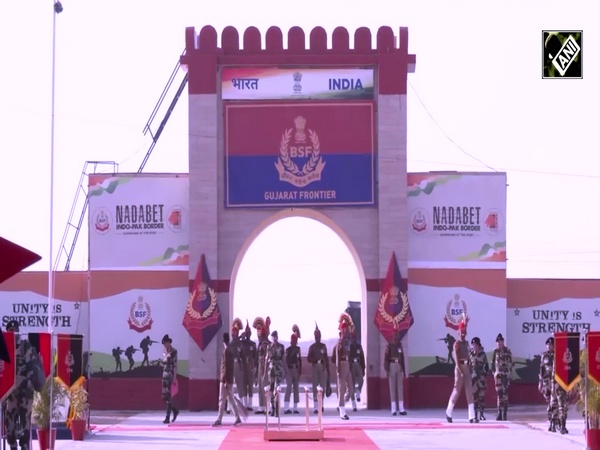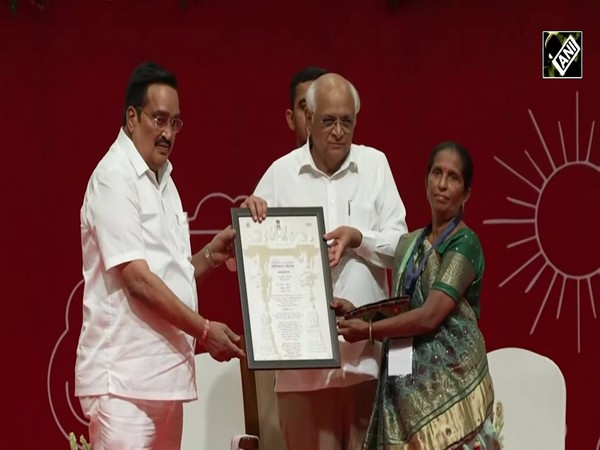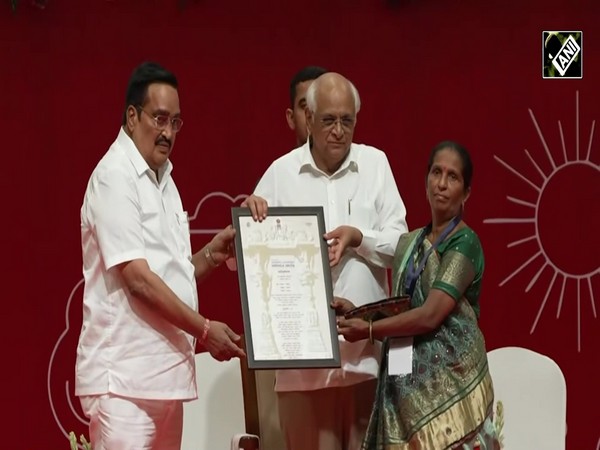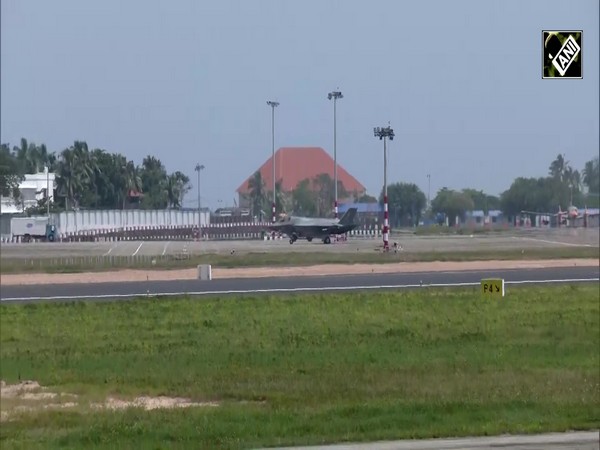"Not looking at BRICS as evolving into some kind of geopolitical rival": White House
Oct 21, 2024

Washington, DC [US], October 22 : White House Press Secretary Karine Jean-Pierre has said that the US is focused on working with partners around the world to build the deepest coalitions possible to achieve shared goals and does not look at BRICS as evolving into some kind of geopolitical rival.
While addressing a press briefing on Monday (local time), Jean-Pierre stated that the US will continue to work with its partners, like India, South Africa, and Brazil.
When asked whether the Biden administration is concerned that BRICS countries could undermine US economic strength, White House Press Secretary responded, "Look, what we're focused on is on working with partners around the world and to build...the deepest coalitions possible to help achieve our shared goals that's what we're going to be focused on and we're not looking at BRICS as an evolving into some kind of geopolitical rival that's not how we look at it the United States or anyone else."
"And so, we're going to continue to work with our relationships, our partnerships, whether it's with Brazil, India, South Africa and so we're going to continue to manage certainly those relationships and with China for example and that's going to be our focus right now," she added.
The BRICS Summit is set to take place in Kazan under Russia's chairmanship on October 22-23. The Summit, themed "Strengthening Multilateralism for Just Global Development and Security," will provide an important platform for leaders to discuss key global issues," according to Ministry of External Affairs (MEA).
She stated that the US has worked extensively with the UAE on advanced technology and noted that the partnership between the two nations is moving forward in the right direction.
On being asked whether the US administration is concerned that the deal between UAE and US to develop AI technologies could end up in Russia, China, or Iran's hands through BRICS agreements, Karine Jean-Pierre said, "We've worked extensively with UAE on advanced technology that is something that we have done and we've done that for the last two years and so that partnering is moving forward and we believe it's moving forward in the right direction."
She further said, "So, we recognize and this is why the president did an executive action, took an executive action on AI. We recognize the potential good of AI and look forward to certainly furthering that and solidifying our collaboration in AI as we try to build the safeguards and protections again. That's why we did the EO and executive action on it."
On October 18, Russian President Vladimir Putin echoed Prime Minister Narendra Modi's stance on BRICS, emphasizing that the grouping is not anti-Western but rather non-Western.
In a recent interaction with reporters from BRICS countries, he highlighted BRICS' unique approach. He said, "BRICS was never meant to be against anyone. The Indian Prime Minister (Narendra Modi) said that BRICS is not an anti-western group, it is a non-western group."
"BRICS does not counterpose itself to anyone. It is a group of nations that work in concert, have shared values and shared goals of development and consider each other's interests. This will be the basis of our working cause," he added.
Putin stated that BRICS plays a significant role in the global economy not only today and that it is quite obvious that this role will increase in the future as well, TASS reported. He said that the countries that are part of the BRICS are in fact the drivers of global economic growth.
According to TASS report, Putin said that in the year 1992 the share of the Group of Seven countries is 45.5 per cent while that of BRICS countries account for 16.7 per cent of global GDP. Putin said BRICS in 2023 accounted for 37.4 per cent and the G7 is 29.3 per cent.
"The gap is widening and it will widen, this is inevitable," Putin said in his address. Putin stressed that BRICS plays a significant role in the global economy not only today. The Russian President stressed that the joint work of BRICS to accelerate socio-economic growth and ensure sustainable development brings tangible results, and actually contributes to improving the well-being and quality of life of ordinary citizens of countries.
"In recent decades, over 40 per cent of the growth in global GDP, the entire global economic dynamics, came from the BRICS countries. Based on the results of the current year, the average rate of economic growth in BRICS is projected at 4 per cent This is higher than both the rates in the G7 countries - there it is only 1.7 per cent - and the global rates. The global rates will be 3.2 per cent," Putin said as quoted by TASS.
BRIC, as a formal grouping, started after the meeting of the Leaders of Russia, India and China in St Petersburg on the margins of G8 Outreach Summit in 2006. The grouping was formalized during the first meeting of BRIC Foreign Ministers on the margins of UNGA in New York in 2006. The first BRIC Summit was held in Russia's Yekaterinburg in 2009.
It was agreed to expand BRIC into BRICS with the inclusion of South Africa at the BRIC Foreign Ministers' meeting in New York in 2010. South Africa attended the 3rd BRICS Summit in Sanya in 2011. A further expansion of BRICS took place in 2024 with five new members - Egypt, Ethiopia, Iran, Saudi Arabia, and the United Arab Emirates.


